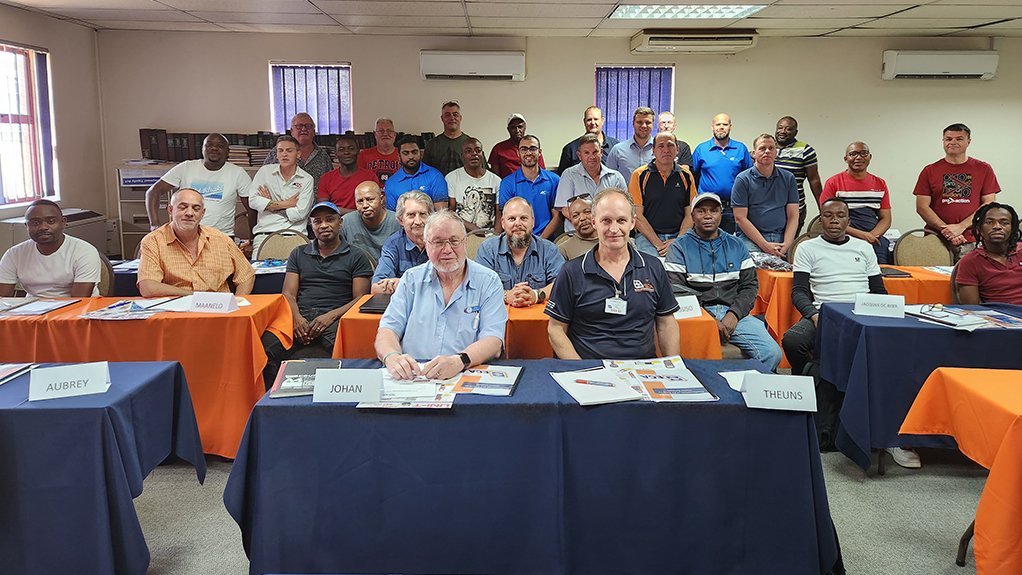Noncompliant installations surge amid energy crisis


UNITING AN INDUSTRY The Electrical Contractors’ Association South Africa is working with multiple associations to formalise and standardise training and requirements for electrical contractors in an effort to realise a united industry
The rush to install standby power supply in South Africa amid the country’s energy crisis has led to an influx of service providers, which are misinforming the public on the legal requirements that electrical installations need to comply with, says trade association Electrical Contractors’ Association South Africa (ECA(SA)) Highveld regional director Anthony Schewitz.
“A registered contractor needs to conduct an electrical installation and a valid electrical certificate of compliance must be issued for that work as per the Electrical Installation Regulations under the Occupational Health and Safety Act 85 of 1993.”
However, the quality of workmanship has decreased, with “quick courses” a big culprit in recent times. Training entities are not teaching the importance of compliance to students, who, ultimately, believe that standby power installations are a “get-rich-quick scheme”, he adds.
“We typically call these companies ‘hit-and-run’ companies because they leave clients high and dry, with no legal recourse after an installation,” says Schewitz, noting that some legitimate contractors are potentially “cutting corners” to compete with the influx of unregistered contractors offering illegal installations at lower prices to attract customers.
Consequently, households looking for the best deal tend to suffer most when costly noncompliant standby power installations fail, with the majority not ensuring that contractors are registered, “as price is king at the end of the day”, he notes.
“Smaller companies may be in a similar boat as residential customers, with most medium- and large-scale companies taking greater care to verify and ensure that they receive the correct documentation to back the installation.”
There are crucial flaws and consequences for installers and users following subpar installations.
“There are safety standards and regulations published and adopted in this country for the specific reason of protecting persons and property. SANS 10142-1 and SANS 60364-7-712 photovoltaic (PV) specification specifically speak to electrical work and specify equipment, and the rating of equipment, that needs to be used,” explains Schewitz.
Many installers knowingly or unknowingly overlook these standards, some of which are there to ensure that equipment operates efficiently by, for example, including ventilation spacing for panels and inverters.
“The consequences of failing to adhere to these standards can range from electrocution to fires,” highlights Schewitz, adding that earthing issues result in some of the biggest installation flaws.
The installation of incorrect components is also a common error that results in premature failure of installations, as these components are not certified by the South African Bureau of Standards (SABS) and the National Regulator for Compulsory Specifications - Letter of Authority (LOA) or any other accepted certification.
While illegal operators and installers have always been a problem in the country, Schewitz believes the introduction of loadshedding caused the situation to worsen and spike suddenly in terms of generator installations in 2010.
Small petrol-driven generators sold at local hardware stores, designed to power appliances, have been used for fixed installations and can cause protective devices not to operate as intended, putting occupants at risk, warns Schewitz.
“PV installations have become a problem only in the past seven to eight years as the technology became more affordable and commercially available, and sold as the solution to South African’s energy problems.”
The same can be said for inverters and battery backup systems, with some installers having attended only a short course, believing that they are “more qualified than those who have taken years to become artisans and study the laws to register accordingly”, he adds.
The Role of ECA(SA)
Schewitz says, on average, the ECA(SA) Highveld Office, in Johannesburg, receives from ten complaints a week to five complaints a day about faulty installations in general, with 95% of complaints received being about non ECA(SA) members.
“In the past year, complaints about solar installations have climbed. ECA(SA) attempts to assist non-members with compliance-related issues by providing guidance through training and discussions, and [we are] successful in some cases. Where we are unsuccessful, these cases are referred to the Department of Employment and Labour or the approved inspection authorities. Where members are the cause of complaints, the ECA(SA) mediates and manages the complaint from notification to commencement.”
The association provides members with access to technical, legal and contractual experts to assist with arbitrational representation or technical guidance on site.
Additionally, the ECA(SA) has numerous accredited training centres in South Africa where training is offered at affordable rates, with members receiving discounts. Members can also buy SABS standards at reduced prices compared with buying directly from the SABS, which ensures that these standards are readily available and more affordable, states Schewitz.
The association is attempting – through various means, including free webinars – to improve and grow the knowledge base of the public and its member base at large.
“The ECA is also working with multiple associations to formalise and standardise training and requirements for electrical contractors, with developments hopefully leading to a united industry. We encourage installers and all those involved in industry to align and support whichever industry body may best represent their interests,” concludes Schewitz.
Article Enquiry
Email Article
Save Article
Feedback
To advertise email advertising@creamermedia.co.za or click here
Announcements
What's On
Subscribe to improve your user experience...
Option 1 (equivalent of R125 a month):
Receive a weekly copy of Creamer Media's Engineering News & Mining Weekly magazine
(print copy for those in South Africa and e-magazine for those outside of South Africa)
Receive daily email newsletters
Access to full search results
Access archive of magazine back copies
Access to Projects in Progress
Access to ONE Research Report of your choice in PDF format
Option 2 (equivalent of R375 a month):
All benefits from Option 1
PLUS
Access to Creamer Media's Research Channel Africa for ALL Research Reports, in PDF format, on various industrial and mining sectors
including Electricity; Water; Energy Transition; Hydrogen; Roads, Rail and Ports; Coal; Gold; Platinum; Battery Metals; etc.
Already a subscriber?
Forgotten your password?
Receive weekly copy of Creamer Media's Engineering News & Mining Weekly magazine (print copy for those in South Africa and e-magazine for those outside of South Africa)
➕
Recieve daily email newsletters
➕
Access to full search results
➕
Access archive of magazine back copies
➕
Access to Projects in Progress
➕
Access to ONE Research Report of your choice in PDF format
RESEARCH CHANNEL AFRICA
R4500 (equivalent of R375 a month)
SUBSCRIBEAll benefits from Option 1
➕
Access to Creamer Media's Research Channel Africa for ALL Research Reports on various industrial and mining sectors, in PDF format, including on:
Electricity
➕
Water
➕
Energy Transition
➕
Hydrogen
➕
Roads, Rail and Ports
➕
Coal
➕
Gold
➕
Platinum
➕
Battery Metals
➕
etc.
Receive all benefits from Option 1 or Option 2 delivered to numerous people at your company
➕
Multiple User names and Passwords for simultaneous log-ins
➕
Intranet integration access to all in your organisation


















